会议征稿 | IASTE 2026暨国际传统人居环境研究会年会一号通知
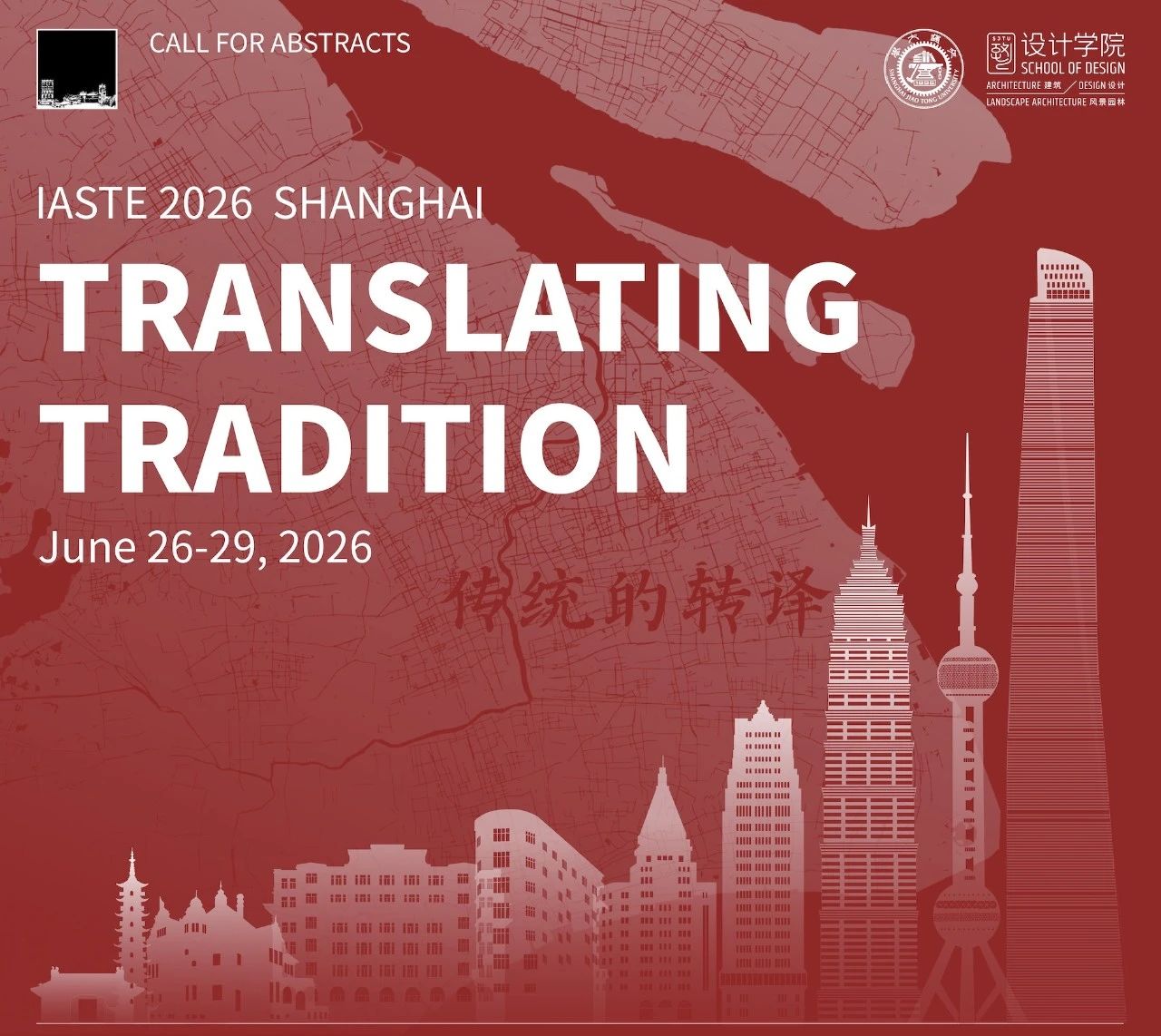
The 2026 conference of the International Association for the Study of Traditional Environments (IASTE) will be hosted by the School of Design at Shanghai Jiao Tong University, marking the first time this prestigious international academic event with over 30 years of history is held in Mainland of China. Under the theme of "Translating Tradition", this year's conference is expected to bring together over 200 scholars, architects, designers, and heritage practitioners from more than 50 countries. Prospective participants are required to submit a 500-word English abstract via the conference website (iaste.org) by September 15, 2025. For further details, please refer to the information below.
国际传统人居环境研究会(IASTE)2026年会将由上海交通大学设计学院承办,系这一有30余年历史的国际顶尖学术会议第一次在中国大陆举办。本届大会以“传统的转译”为主题,预计将有超过50个国家的200余名国内外学者、建筑师、设计师、遗产管理者和从业者等参与。大会交流语言为英语。申请参会者请于2025年9月15日前提交500词英文摘要(通过会议官网iaste.org)。详情请参见下文。
会议主题

Tradition has always meant different things in different cultures and to different groups of people, ranging from legacies, transmissions, constraints, and their attributes. As IASTE has elevated the notion of "tradition" to be a focal point within the global intellectual dialogue, the translation of the term "tradition" itself varies according to historical and contemporary contexts across a myriad of socio-cultural landscapes. For example, in China, the equivalent term "chuan tong" plays a pivotal role in the making of the built environment. Hence, the translation of "tradition"— in a linguistic or practical sense—has been widely employed but insufficiently debated or defined. As pointed out in previous IASTE conferences, finding the exact equivalents of "tradition" in different cultures and languages is almost impossible. This is even more evident as its meanings in one single culture may change across time due to its dynamic nature. So how do we foster dialogues in both theory and practice on an international scale, given the uncertainty of the term's "translatability"? Would such dialogues enlighten contemporary design practice related to the processes of tradition? How has the development of new technologies helped to facilitate new practices of translation that reshape our relations to time and space in recent years? In this conference, we will not fixate on deriving a shared conclusion. Still, instead, we will strive to focus on the challenging, debatable, and critical processes of translating tradition across different arenas of theory and practice.
“传统”在不同的文化语境和社会群体中始终具有多重内涵,包括其遗产、传承、约束及其各种属性。IASTE早已将“传统”这一概念提升为全球智识对话的核心议题之一,但针对“tradition”一词的翻译,却因历史与当代语境的差异而在不同社会文化背景下呈现多样化。例如在中文语境中,“传统”一直在建成环境的建构过程中发挥着关键作用。无论从语言还是实践角度,“传统”的翻译和转译虽被广泛使用,却缺乏足够的学术探讨与定义。正如历届IASTE会议所指出的,“传统”在不同文化和语言中很难找到确切的对应词,甚至在同一文化中,其含义也可因时间推移而发生变化。那么,在“可翻译性”这一前提并不确定的条件下,我们如何在全球范围内开展理论与实践的对话?对话能否启发与传统相关的当代设计实践?近年来新兴技术的发展又如何促进新的转译实践,重塑我们与时间和空间的关系?本届会议并不旨在得出统一的结论,而是聚焦于“传统的转译”过程中那些富于挑战性、争议性与批判性的理论与实践议题。
With the theme "Translating Tradition", IASTE 2026 in Shanghai aims to advance this discourse within the IASTE intellectual framework, set against the backdrop of the vibrant metropolis of Shanghai, located between China and the world, where tradition has been dynamically translated, constructed and redefined. Lying at the crossroads of Eastern and Western culture since the mid-19th century, Shanghai has been translating tradition from the West to the East, as seen in its rich architectural heritage referred to in China as "the architectural expo of the world". At the same time, it has translated its multicultural traditions into the present through vibrant design practices in a globalized context. Throughout this process, one may ask, for example, in the case of Shanghai, what new knowledge has been produced through ongoing processes of cross-cultural exchange and construction of the modern built environment that came to be identified with Shanghai itself? How have these dynamics ushered new relations to China's cultural past and urban identity of Shanghai, which once lay at the margins of Western modernity and the center of Chinese modernity? As we embrace the role of diverse traditions in shaping the built environments in cities like Shanghai, we often neglect to interrogate the crucial temporal, spatial, and socio-cultural processes involved in this translation. This is even more essential in metropolitan places and cities with multilayered histories. For instance, by whom and for whom are these translations intended? Which traditions are chosen or neglected in this process? How can we explain the semantic changes in both physical and non-physical dimensions?
以“传统的转译”为主题,IASTE 2026将在上海举办,致力于在IASTE的知识体系中推进相关讨论。上海作为一座活力都市,长期处于中国与世界之间的交汇点,是传统不断被转译、建构与再定义的重要场所。自19世纪中叶以来,上海即位于东西方文化的交汇之处,见证了西方传统向东方的转译,这体现于其被誉为“世界建筑博览会”的丰富建筑遗产中;同时,上海的多元文化传统也借助其全球化视野的活跃设计实践得到延续和演绎。在此背景下,我们不禁要问,以上海为例,通过持续的跨文化交流与现代建成环境的建构,究竟产生了哪些被归属于上海自身的新知识?这些动态过程如何重新建构了中国文化历史与上海——这一曾处于西方现代性边缘和中国现代性中心的城市——的身份认同之间的关系?当我们强调传统在上海等城市的建成环境中所发挥的重要作用时,常常忽略了其中关键的时间性、空间性与社会文化转译机制。这在上海这样的具有多层历史结构的大都会城市空间中尤为关键。例如,谁是转译的推动者?又是为谁而转译?在转译的过程中,哪些传统被选择,哪些又被忽视了?我们如何解释其物质与非物质层面的语义转变?
IASTE 2026 will address theoretical complexities associated with translating the concept across languages and cultures and examine practical challenges faced by architects, urban designers, and heritage practitioners in translating and inheriting tradition in spheres such as urban renewal, rural revitalization, and heritage tourism. The organizers of IASTE 2026 invite prospective participants to submit papers that consider numerous ways in which traditions have been translated across dimensions of space and time. As in past IASTE conferences, scholars, professionals, and practitioners from anthropology, architecture, architectural history, conservation, design, folklore, geography, history, planning, urban design, landscape architecture, urban studies, and related disciplines are encouraged to submit papers that address one of the following tracks:
国际传统人居环境研究会2026年会将围绕上述问题深入探讨“传统”这一概念在不同语言与文化中的理论复杂性,同时关注建筑师、城市设计师及遗产从业者在城市更新、乡村振兴与遗产旅游等领域的“转译”与“传承”传统时所面临的实践挑战。会议主办方诚邀有意参会的学者提交论文,探讨传统如何在跨越时间和空间的维度上被“转译”。与往届会议一致,来自人类学、建筑学、建筑史、遗产保护、设计学、民俗学、地理学、历史学、城乡规划、城市设计、园林景观、城市研究及相关领域的学者、专业人士与从业者,均可提交论文,探讨以下主题之一:
TRACK I: TRANSLATIONS OF THE CONCEPT OF TRADITION ACROSS SPACE AND TIME
议题一:跨越时间和空间的传统概念转译
Papers in this track will delve into the intricacies and complexities of translating the term "tradition" across varied linguistic and cultural spectra. Given the multifaceted interpretations and applications of tradition, papers are encouraged to reflect upon, dissect, and redefine the theoretical contours of tradition as mentioned earlier with the Chinese notion of "chuan tong". How does one understand and articulate the concept of "tradition" in a global lexicon? Where does the term overlap or diverge across cultural paradigms? By anchoring our discussion in such questions, this track aims to elucidate tradition's diverse intellectual constructions and theoretical legacies.
本议题的论文将聚焦“传统”一词在不同语言与文化中转译的复杂性。鉴于传统的多重诠释与运用,我们鼓励论文对“传统”的理论边界进行反思、剖析与重新界定,如前文所提的“传统”一词。我们如何在全球语境中理解并表达“传统”?在不同文化范式中,传统的概念是如何重叠或分歧的?在不同的文化范式中,该术语存在哪些重叠与分歧?通过围绕这些问题展开讨论,本议题旨在阐明“传统”在知识建构与理论传承中的多样形态。
TRACK II: DEPLOYING TRADITION IN PRACTICE ACROSS CULTURES
议题二:传统在跨文化实践中的运用
Tradition isn't merely an abstract concept. It is dynamically embodied in tangible manifestations, reshaping spaces and influencing the built environment over time and across cultures. Papers in this track will unravel the challenges and innovations associated with deploying traditions across various local, national and international boundaries. This track will provide insights into how architects, urban designers, and heritage practitioners negotiate, embrace, or adapt traditions by focusing on real-world scenarios such as urban renewal, rural revitalization, and heritage tourism. How do these professionals bridge the past with the present, the local with the global, and the inherited with the innovative? This track explores these intersections, offering a holistic understanding of tradition's practical implications in our rapidly evolving world.
传统并不只是一个抽象的概念。它以物化的形式被动态体现,随着时间推移并跨越文化界限,不断重塑空间并影响建成环境。本议题的文章将探讨在不同地方、国家与国际边界中,实践传统所面临的挑战与创新。议题将深入剖析建筑师、城市设计师与遗产从业者如何在城市更新、乡村振兴与遗产旅游等现实案例中协商、接纳或调适传统。他们如何在过去与现在、本地与全球、传承与创新之间架构起桥梁?通过探讨这些交汇点,本议题提供了一个更整体的视角来理解传统在当今迅速变化世界中的实践意义。
TRACK III: OPEN TRACK
议题三:开放议题
As with previous IASTE conferences, IASTE members and scholars who have produced new and innovative work on popular, vernacular, Indigenous, spontaneous, and other forms of traditional dwellings and settlements that may not directly address the conference theme are invited to participate in this open track. Papers will be selected based on quality and assigned to similar papers in theme sessions.
与以往IASTE会议一致,IASTE成员及在民间、地方性、原住民、自发性等传统居住与聚落形式方面有新颖研究成果的学者,亦欢迎参与本开放议题,尽管其研究内容未必直接回应本次会议主题。论文将根据质量进行遴选,并归入相关主题的小组讨论中。
SPECIAL SESSIONS/PANELS
特别会议/专题论坛
Over the past few years, IASTE conferences have included special sessions and panels on conference themes collectively organized or sponsored by specific groups or institutions. Such proposals are welcome again in 2026 to facilitate outreach to researchers from disciplines not normally engaged with IASTE or to introduce new topics or debates.
近年来,IASTE会议设置了由特定研究团体或机构共同组织或赞助的专题论坛与特设小组,围绕会议主题展开深入讨论。2026年会议将继续欢迎此类提案,以促进与IASTE通常未涉猎学科的研究者建立联系,或引入新的议题与学术争论。
大会日程表

Deadline for abstract submission: September 15, 2025
Notification of acceptance of abstracts: November 15, 2025
Deadline for Early-bird registration: January 1, 2026
Deadline for Presenters registration: February 1, 2026
Deadline for WPS 2026 paper submission: May 1, 2026
Deadline for presentation submission: June 1, 2026
Conference activities: June 26-29, 2026
Post-conference tour: June 30, 2026
摘要提交截止:2025年9月15日
摘要录用通知:2025年11月15日
早鸟注册截止:2026年1月1日
报告人注册截止:2026年2月1日
论文全文提交截止:2026年5月1日
汇报材料提交截止:2026年6月1日
会议日期:2026年6月26日–29日
会后参访:2026年6月30日
论文提交要求

Please refer to our website (iaste.org) for detailed instructions on abstract submissions. A one-page abstract of 500 words and a one-page CV are required. For further inquiries, please email IASTE at coordinator@iaste.org. Proposals for complete panels of four to five papers are also welcome. Please indicate the track in which the panel fits. Panel submissions must include an overall abstract in addition to abstracts and CVs from all proposed speakers. IASTE may accept the panel as a whole or only accept individual abstracts and place them in appropriate tracks.
All papers must be written and presented in English. Contributors whose abstracts are accepted must preregister for the conference, pay the registration fee of $450 (which includes IASTE membership for 2024), and expected to prepare a full-length paper of 20-25 double-spaced pages. Registered students and spouses may qualify for a reduced registration fee of $250 (which also includes IASTE membership for 2026). Please note that the registration fee does not cover expenses associated with hotel accommodations, travel, and additional excursions and must be paid directly to the hotel or designated travel agent. The registration fee covers the conference program, conference abstracts, and access to all conference activities, theme sessions, keynote plenary talks, receptions, and a walking/bus tour of the city.
请参考官方网站(iaste.org)获取有关摘要提交的详细说明。投稿者需提交一页(500字)摘要和一页个人简历。如有进一步问题,请发送邮件至IASTE邮箱:coordinator@iaste.org。完整的小组提案(4–5篇论文)亦可整体提交。请注明该小组拟归属的议题方向。小组提案需提交一份整体摘要,以及所有拟参会发言人的个人摘要与简历。IASTE有权整体接收该小组,或仅接收其中若干篇论文,并将其归入适当议题。
所有论文须用英文撰写并以英文演讲。摘要被录用的作者需提前注册会议,并缴纳450美元注册费(其中包含2026年IASTE会员资格),并准备一篇20至25页、双倍行距的完整论文。注册学生及配偶可享受250美元的优惠注册费(同样包含2026年IASTE会员资格)。请注意,注册费不包括酒店住宿、交通及游学等相关费用,需另行向酒店或指定旅行社支付。注册费包含会议手册、摘要集、所有会议活动、议题分会、主旨演讲、欢迎酒会以及城市步行/巴士参访的参与权限。
大会组委会

Mark Gillem, University of Oregon, IASTE President and Conference Director
Xing Ruan, Shanghai Jiao Tong University Local Conference Director
Hesham Issa, Cairo University, IASTE Secretary General and Conference Co-Director
Nezar AlSayyad, U.C. Berkeley, IASTE President Emeritus and Program Committee Chair
Montira Horayangura, UNESCO, IASTE Vice President
Adnya Sarasmita, IASTE Conference Coordinator
Huaqing Huang, Shanghai Jiao Tong University Local Conference Coordinator
Mark Gillem(俄勒冈大学)–大会主席兼会议总负责人
阮昕(上海交通大学)– 承办大会主席
Hesham Issa(开罗大学)– IASTE秘书长兼会议联合负责人
Nezar AlSayyad(加州大学伯克利分校)– IASTE创始主席兼论文委员会主席
Montira Horayangura(联合国教科文组织)– IASTE副主席
Adnya Sarasmita – IASTE会议执行主任
黄华青(上海交通大学)– 承办会议执行主任
承办组委会

Xing RUAN, Dean of the School of Design, Guangqi Chair Professor of SJTU/ Director
Yongkang CAO, Vice Dean/Professor of the School of Design
Huaqing HUANG, Coordinator/Associate Professor, School of Design
Hao WANG, Assistant Professor, School of Design
Qian DU, Associate Researcher, School of Design
Abraham ZAMCHECK, Assistant Professor, School of Design
Shuai DU, Secretary of Foreign Affairs, School of Design
Yang BAI, Office of Foreign Affairs, School of Design
阮昕 上海交通大学光启讲席教授、设计学院院长、承办大会主席
曹永康 上海交通大学设计学院副院长、教授
黄华青 上海交通大学设计学院副教授、会议执行主任
汪灏 上海交通大学设计学院助理教授
杜骞 上海交通大学设计学院副研究员
Abraham Zamcheck 上海交通大学设计学院助理教授
杜帅 上海交通大学设计学院合作交流办公室主任
白杨 上海交通大学设计学院合作交流办公室外事秘书
审稿与分论坛委员会

Nezar AlSayyad(加州大学伯克利分校,主席), Mohamed Gamal Abdelmonem(约克大学), Heba Ahmed(开罗大学), Hamad Nasser Alsaiari(沙特国王大学), Tiago Castela(波尔图大学), Howayda al-Harithy(贝鲁特美国大学), Mohammad al-Jassar(科威特大学), Anne Marie Broudehoux(魁北克大学), Yin Cao/曹寅(北京大学), Cecilia Chu(香港中文大学), Mui Ho(加州大学伯克利分校), Puay Peng Ho(新加坡国立大学), Huaqing Huang/黄华青(上海交通大学), Hong Jiang/江泓(东南大学), Chee-Kien Lai(新加坡国立大学), Geng Li/李耕(澳门理工大学), Yingchun Li/李颖春(同济大学), Yishi Liu/刘亦师(清华大学), Jing Luo/罗晶(中央美术学院), Min Tang/唐敏(同济大学), Ipek Tureli(麦吉尔大学), Hao Wang/汪灏(上海交通大学), Lala Zuo/左拉拉(上海纽约大学)(以姓氏英语首字母顺序排列)
会议赞助方

School of Design, Shanghai Jiao Tong University
上海交通大学设计学院
会议赞助和奖励计划

Two awards will be given for papers presented to the conference: the Jeffrey Cook Award for the best paper by a scholar dealing with traditional dwellings the Eleni Bastea Award for the best paper on an urban Issue. Most winners will receive a monetary award, and their papers will be published in the IASTE journal Traditional Dwellings and Settlements Review (TDSR) after appropriate review and revision. In addition to these standard paper awards, IASTE will offer a number of Conference Attendance Grants. These stipends will be awarded to graduate students and junior scholars on a merit-need basis. The funds may be disbursed before the conference to offset registration fees or after the conference as reimbursement for travel or accommodation expenses.
本次会议将颁发两项论文奖项:杰弗里·库克奖(Jeffrey Cook Award):授予在传统居住研究领域表现最佳的学者论文;埃琳尼·巴斯蒂亚奖(Eleni Bastea Award):授予聚焦城市议题的最佳论文。大多数获奖者将获得奖金,其论文将在通过评审与修改后,发表于IASTE主办期刊《传统住屋与聚落评论(Traditional Dwellings and Settlements Review)》(TDSR)。除上述论文奖项外,IASTE还将提供若干面向研究生与青年学者的参会资助金,依据学术能力与经济需求综合评定。该笔资助可用于会议前抵扣注册费,或会议后用于报销交通或住宿费用。
会议地点

On both Xuhui and Minhang campuses of Shanghai Jiao Tong University, in venues with history across 130 years. The School of Design's main building, which is a translation of the Chinese traditional housing culture and wooden structure, will hold the opening session and some other major events. The Xuhui campus is located in the historic center of Shanghai and is one of China's earliest modern university campuses. It will host all the paper sessions.
会议将在上海交通大学徐汇校区与闵行校区举办,这是两片跨越130年历史的校园。开幕式及部分重要活动将于闵行校区设计学院主楼举行,该建筑以中国传统院落住宅和木构体系为灵感进行转译设计。徐汇校区位于上海历史城区中心,是中国最早的现代大学校园之一,将主要承办论文分论坛环节。
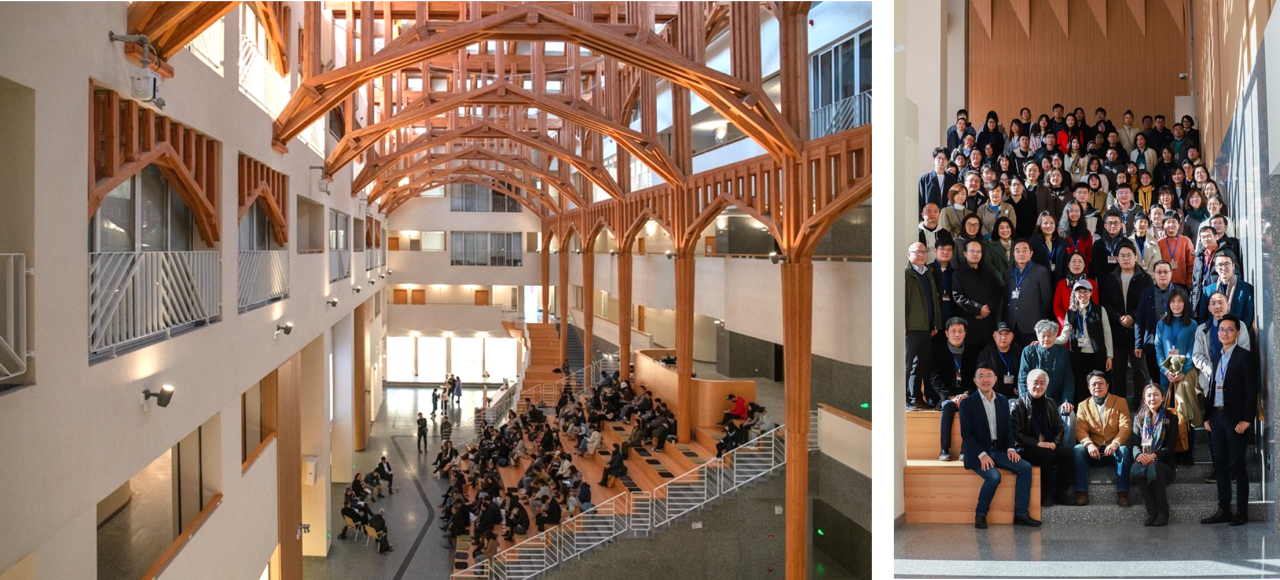
Main Venue,
Shanghai Jiao Tong School of Design Building
主会场,设计大楼,上海交通大学闵行校区
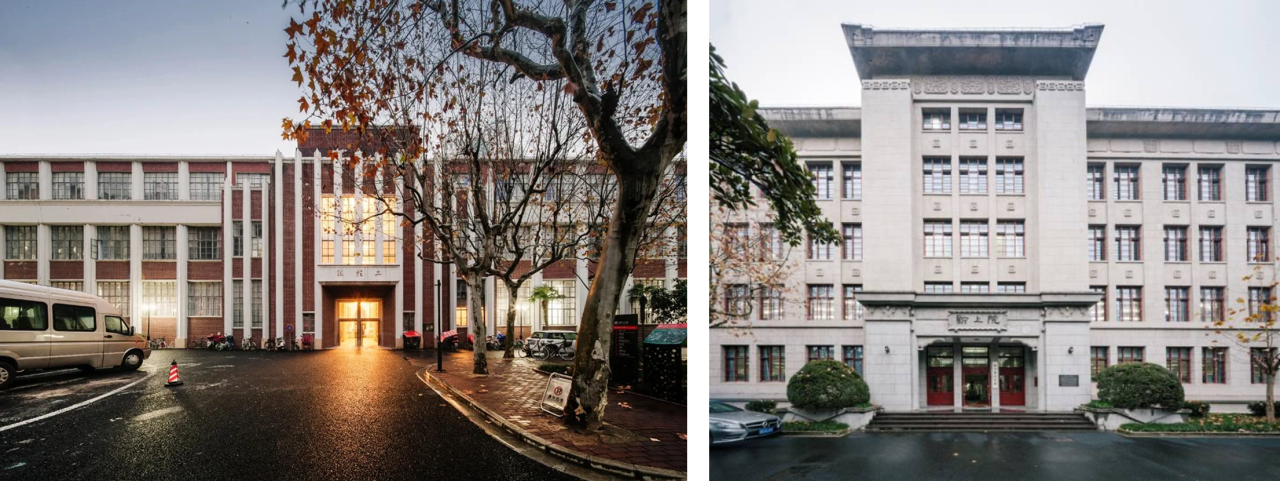
Other Venues, Xuhui Campuse, Shanghai Jiao Tong University
其他会场,上海交通大学徐汇校区
会议参访

Three walking tours will be organized to explore Shanghai's various faces, including the historical center, the former foreign concessions from the mid-19th to early 20th century, the waterfronts, and urban renewal districts with avant-garde design.
会议期间将组织三条徒步参访线路,带领与会者探索上海的多重面貌,包括历史城区、19世纪中叶至20世纪初的外国租界、黄浦江滨水空间,以及融合先锋设计的城市更新区域。
Tour 1: Dwelling in Central Shanghai: An Urban History since the 19th century
路线1:居住在上海中心:19世纪以来的城市史
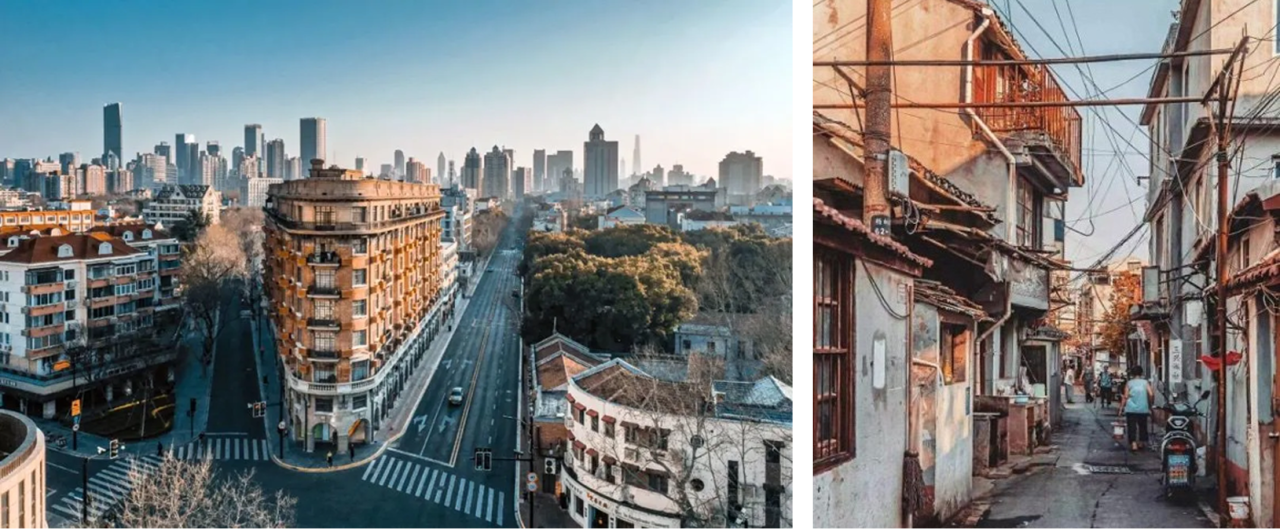
Tour 2: The Bund: From History to Future
路线2:外滩——从历史走向未来
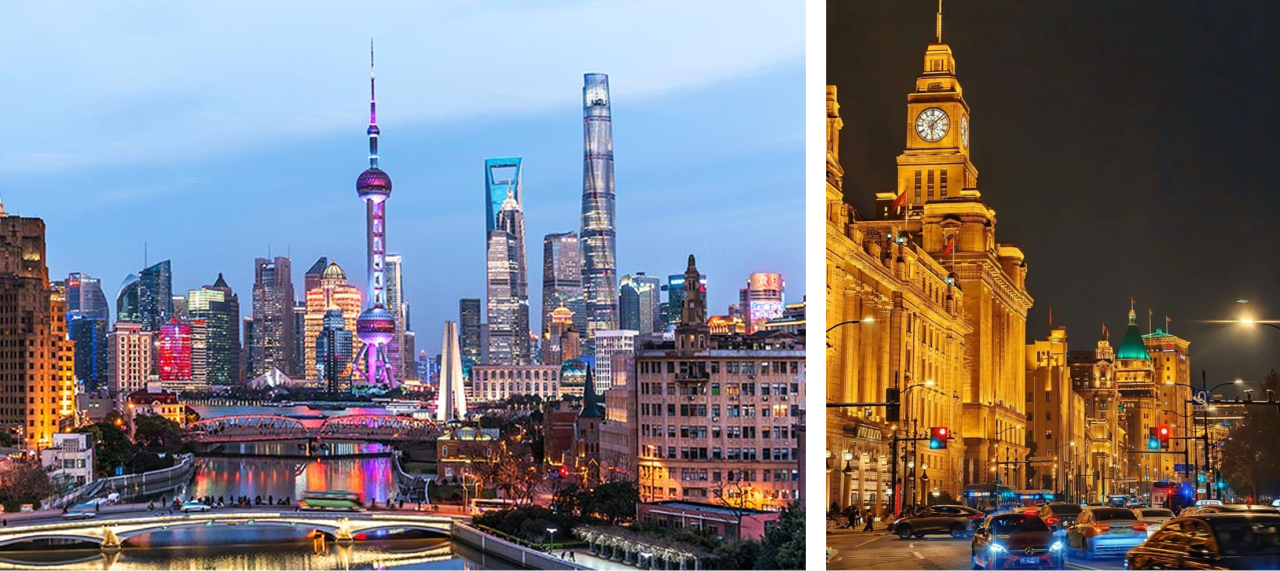
Tour 3: Urban Renewal of the Industrial Water Fronts
路线3:工业滨水区的城市更新
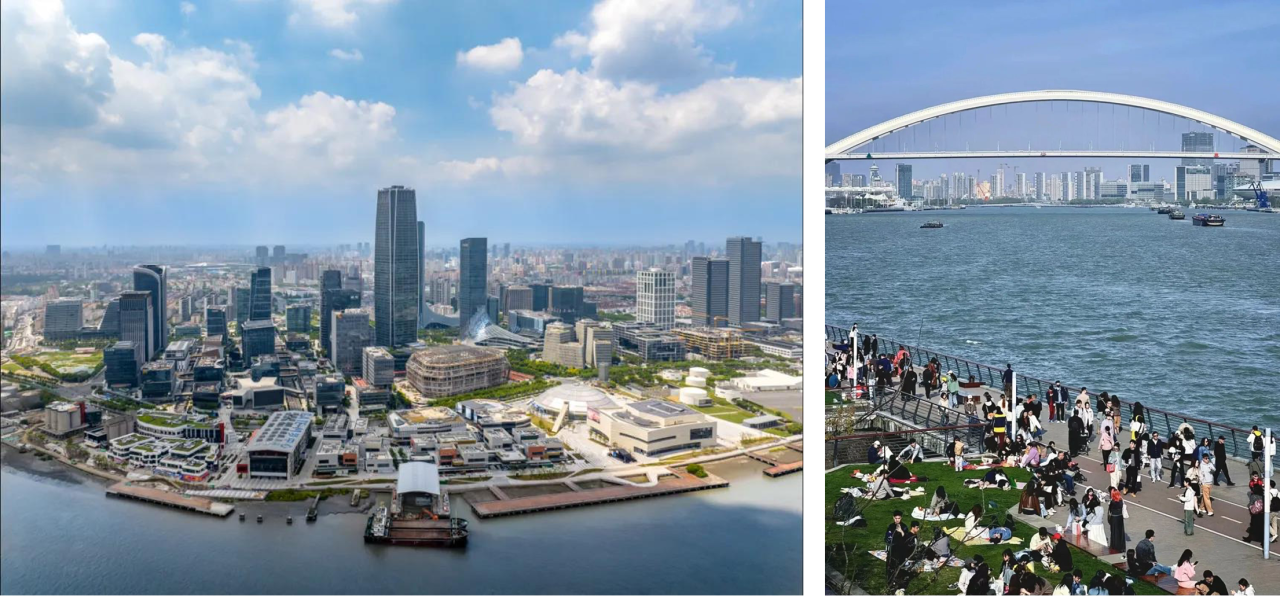
会后自选参观

Route 1: Watery Town in Traditional Shanghai
路线1:传统上海水乡古镇
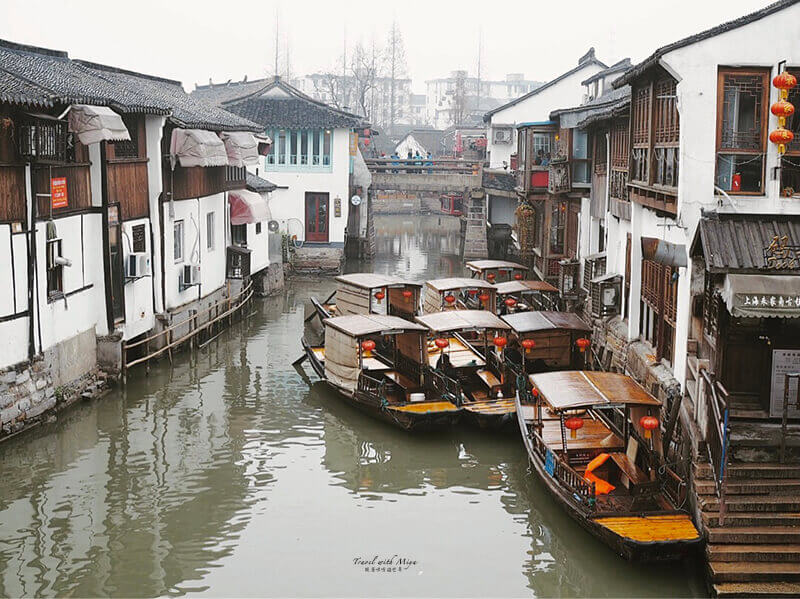
Route 2: Classical Gardens of Suzhou (a UNESCO World Heritage Site)
路线2:苏州古典园林(世界文化遗产)

Further information about the post-conference tours will be updated later.
有关会后参观行程的更多信息将于后期更新。
参观代理:Shanghai Ctrip International Travel Agency Co., Ltd
联系方式:Davidsong_@outlook.com
会议酒店

Crowne Plaza Shanghai by IHG is a 5-star hotel located within walking distance to the Xuhui campus, where all the paper sessions will take place. It is also located in the city center with convenient metro connection to the airport and major tourist sights.
For reservation and inquiries, please contact the hotel directly through email reserves@cpsha.com. Please mention "participants for IASTE 2026 conference" to enjoy the conference rates.
上海银星皇冠假日酒店(IHG集团)为五星级酒店,步行可达会议分论坛举办的徐汇校区。酒店地处上海市中心,交通便利,地铁直达机场及主要景点。
如需预订或咨询,请直接联系酒店邮箱:reserves@cpsha.com。预订时请注明“IASTE 2026会议参会者”以享受会议专属价格。
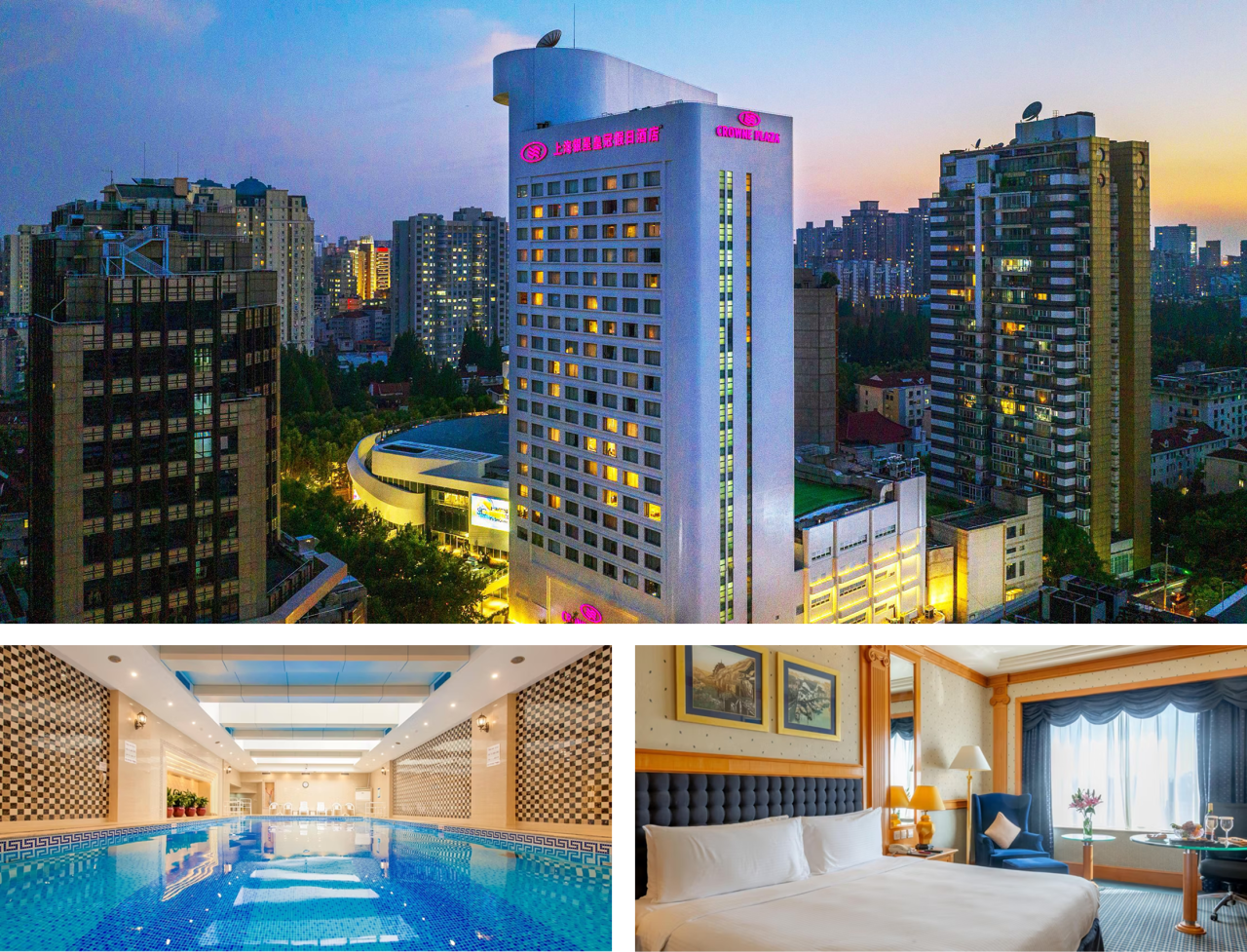
Hotel Crowne Plaza Shanghai
上海银星皇冠假日酒店
Standard: 600 RMB/night
Standard Work Life: 700 RMB/night
Standard Technology: 750 RMB/night
Standard Lounge Access: 900 RMB/night
(All the room types have choices of king bed / twin room. Please mention your preference upon reservation.)
• 高级房:600元
• 舒适高级房:700元
• 高级房电影主题:750元
• 高级房含行政礼遇:900元
(所有房型均可选择大床房或双床房,请在预订时注明您的偏好)